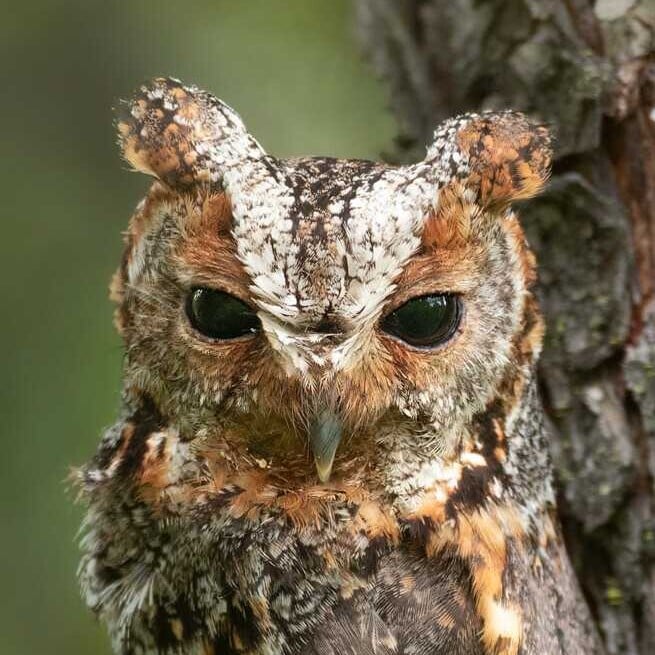I’m really looking for what may have been the driving motivation and reward. The focus is on your personal drive for the interest and what you gained from it.
We can’t have meaningful conversations if people are scared to be honest, so please be authentic, forthcoming, and respectful. Conversely, please respond to others with compassion so that users feel safe enough to be vulnerable.
I grew up in a boring northern state and moved to California. My world opened and, well, I never went back.
Got a bit interested in AAVE when I happened to end up as the token white guy in a D&I club that was literally entirely black women and one AFAB Black NB.
Felt like a kod getting a gold stat sticker when one of them said I was understanding their stuff better than the assigned prof who was a literal trained expert on the stuff, mostly because they was a real jackass.
I’m a world builder, so learning about other cultures and seeing how those inspire me is just something I do often for fun.
One of us, one of us!
I came here to say pretty much the same thing. It’s even more interesting when you’re working with a future-of-the-real-world setting, and so you actually have to think about how present-day cultures might evolve into the future.
Same, though I’m the son of a Cuban immigrant so I don’t fully fit into OP’s question… that said, I don’t have any African heritage.
In my D&D homebrew world, the Halfling culture live in a sub-tropical region. I modeled their culture, lifestyle, and traditional fighting techniques of those from Jamaica - particularly the machete martial artists. This is the video that inspired it for me.
I’m the son of a Cuban immigrant
que bola, asere?
My midwestern US schooling taught me almost nothing about African or diaspora history beyond the slave trade. When I learned that there was a whole big huge continent whose history I didn’t know, I was fascinated. Simultaneously, I was awakening to the systemic injustice that Afro-folks experience in the United States, and wanted to learn as much as I could about their background and context.
Can’t say it’s been intense, or about any specific culture, but I just genuinely like to learn about other cultures.
I went to a 90% black k-12 advanced magnet school from 9th-12th grade in the Southeastern USA. I’m white. I never really got like an intense interest or anything. This level of stereotype culture is of limited interest to me personally. It was just my culture group for a time. I dated a black girl for awhile, and a Persian girl for awhile too. I even picked up a few lines of Farsi, although I don’t remember any of them now.
The culture is very different in the black American south. Probably the biggest takeaway I have is that poverty culture largely forms the flavor of any community, and communities without poverty have no flavor to them. The struggles are very real, but the solutions are never straight forward. Neglect and abuse causes irreparable harm and scaring as deep as a community and cultural level. Only persistent change and time can heal those wounds. No outsider has a right to minimize or belittle those traumatized by abuses and neglect.
I love the blues and jazz and the history of it. The heart of American culture is black culture.
My first and only full BF is of Malagasy heritage, complete with the accent, though anytime I mention his culture having grown on me, there are people who will say “Madagascar isn’t real African culture” since it was settled by Indonesians from the thirteenth century and was an extension of their own Buddhist existence. Other than that, I went down an Afro-Latino rabbit hole whilst learning that the majority of the conquistadors had African heritage and an Afro-Carribean rabbit hole due to Alastor from Hazbin Hotel, both being insightful.
I’ve been on a kick lately from my music studies. I got assigned some bossa nova to learn, so I listened to a bunch, and then since I love reading and researching, I started looking into the origins and evolution of things.
I also listen to some podcasts about social issues, and that gets me interested in all sorts of things, so I dive into history of slavery and systematic racism to learn what I wasn’t taught in school.
In my current job and the last, I’m also pretty much the only white employee, so I try to inform myself on things so I don’t say any stupid redneck stuff.
Mainly, I just want to be less ignorant whenever possible…
I’m about as western European white as it gets. I was very much into hip hop when I was in high school, though not specifically into African-American culture as a whole.
That said, I’ve always been a big admirer of the spirit shown within the culture. Especially how the plight of slavery has had such an impact, it created a sort of shared understanding and development.
I feel the need here to emphasise that slavery is a horrible concept and I am not making light of any positive effect it may have had.
It was when I started watching Lovecraft Country that I delved into the song Sinnerman. It was the soundtrack of the show and the show does touch on class struggle in the United States circa 1950.
But the passion, the sheer soul of these kinds of songs, like Sinnerman, and how they travel through time and space, it’s just special in a way that is hard to describe.
Any culture is always far more profound than just certain aspects that pop up and pique your interest. But it is very interesting how something like that is a way to get a deeper understanding of some things.
I’m trying to phrase this as carefully as possible but I am very aware that I am on the outside of this culture and can’t begin to understand any of it fully or the way it was intended.
spirit shown within the culture
Yes, I love it! I’ve been obsessed with it for like the past month. Music, analysis of music, general emotional expression, stories of prominent figures, the deeper meaning of stories, understanding privilege, strong sense of community and compassion, self-reliance and rightful mistrust of systems, acceptance, strong faith that helps navigate life and overcome adversity, and even the language. OMG the language. So many metaphors and subtle yet straight-forward communication. I might be too obsessed 😬






